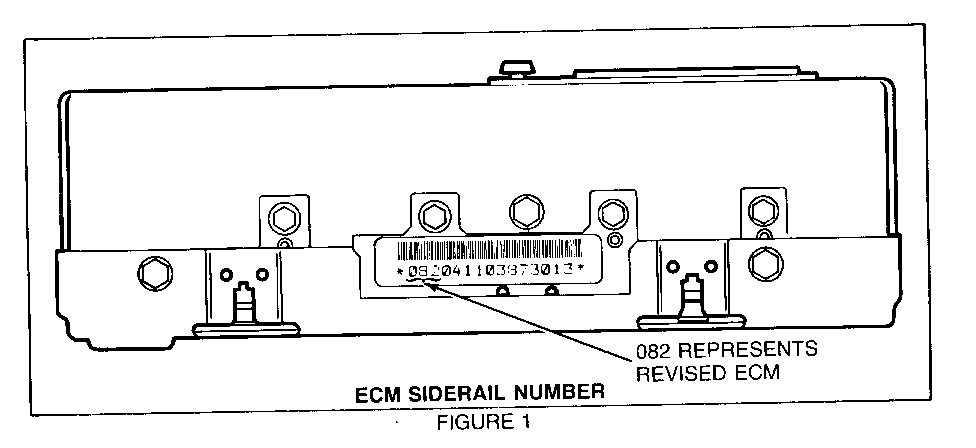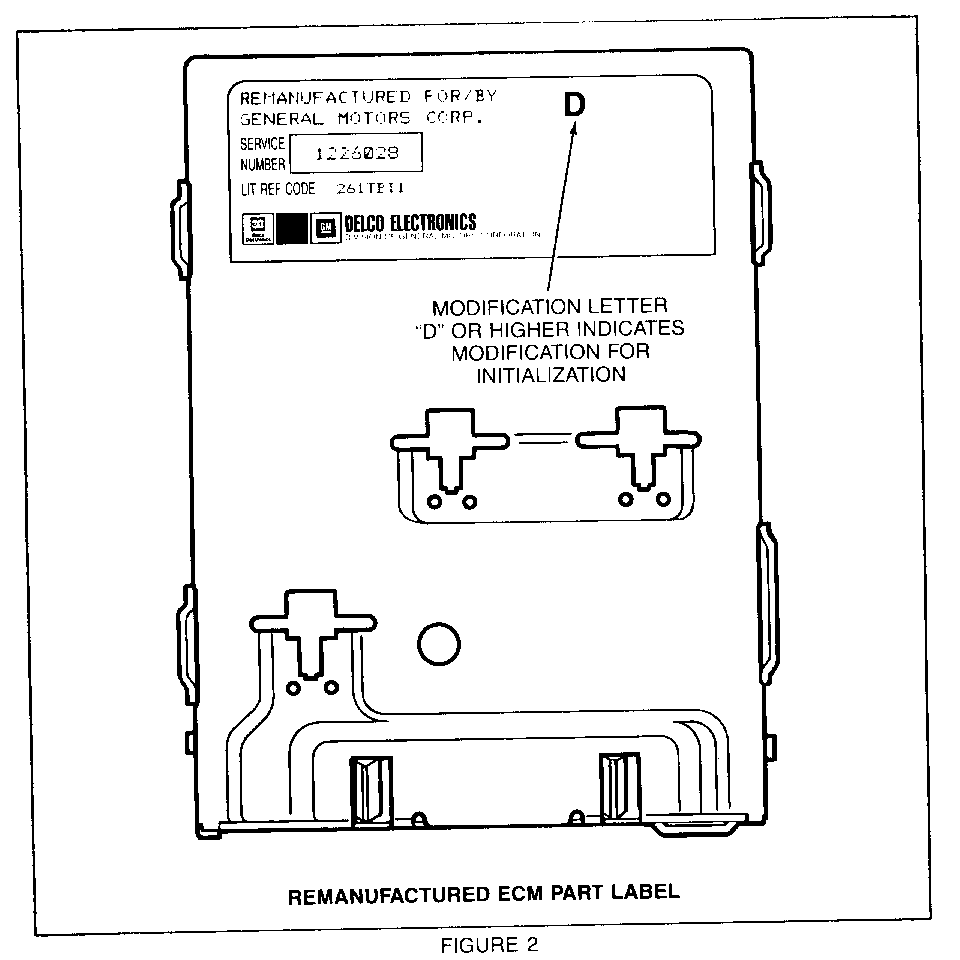INTERMITTENT ECM OPERATION PROBABLE CAUSES/SYMPTOMS

INTERMITTENT ECM OPERATION - 1983 DFI EQUIPPED VEHICLES
Intermittent ECM operation may be experienced on some 1983 DFI-equipped vehicles. This condition may cause the following symptoms, which occur immediately after the ignition is turned on and remain for the entire ignition cycle.
"Service Now" telltale lamp on. Backup fuel operation. Blank fuel data panel display. ISC not controlled by ECM. Diagnostics not usable. No "coolant temperature" telltale bulb check at key on. EGR solenoid chattering at key on, engine off (this condition is normal on 1982 vehicles, but is not always audible).
After this condition occurs, the ECM may operate normally during ignition cycles, during which there will usually be no trouble codes stored as a result of this condition. The counter of ignition cycles since the last trouble code will not be reset to 0. (The ECM is designed to clear all stored codes and reset the counter to 0, after 50 ignition cycles without any malfunction being detected.)
Some of these symptoms may also be caused by a PROM which has a bent pin (leg), or a pin which is not making a solid contact with the socket. Inspect the PROM pins for damage. If the PROM pins are not damaged, replacement of the ECM is required to correct this condition.
The ECM, rather than the PROM, is the probable cause of the symptoms listed above if all of the symptoms listed above are found.
A design change has been made to both new and remanufactured ECM's to prevent the likelihood of occurrence of this condition. ECM's incorporating this change are identified in one of the following ways:
1. The first three digits of the ECM side rail number contain 082 (see Figure 1 on reverse side),
OR
2. The first three digits of the ECM side rail number contain 609 and the modification revision number in the upper right hand corner of the part number label contains the letter "D" or higher (see Figure 2 on reverse side).


General Motors bulletins are intended for use by professional technicians, not a "do-it-yourselfer". They are written to inform those technicians of conditions that may occur on some vehicles, or to provide information that could assist in the proper service of a vehicle. Properly trained technicians have the equipment, tools, safety instructions and know-how to do a job properly and safely. If a condition is described, do not assume that the bulletin applies to your vehicle, or that your vehicle will have that condition. See a General Motors dealer servicing your brand of General Motors vehicle for information on whether your vehicle may benefit from the information.
